 Petzlover
Petzlover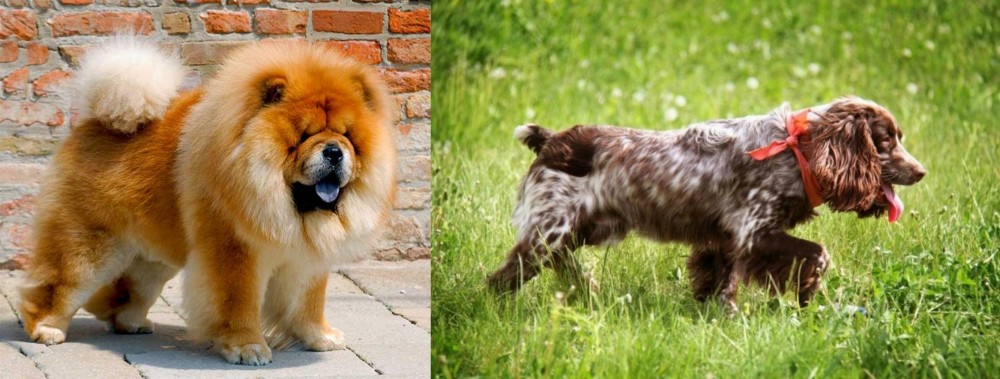 Chow Chow is originated from China but Russian Spaniel is originated from Russia. Chow Chow may grow 6 cm / 3 inches higher than Russian Spaniel. Chow Chow may weigh 16 kg / 36 pounds more than Russian Spaniel. Both Chow Chow and Russian Spaniel has almost same life span. Both Chow Chow and Russian Spaniel has same litter size. Chow Chow requires High Maintenance. But Russian Spaniel requires Moderate Maintenance
Chow Chow is originated from China but Russian Spaniel is originated from Russia. Chow Chow may grow 6 cm / 3 inches higher than Russian Spaniel. Chow Chow may weigh 16 kg / 36 pounds more than Russian Spaniel. Both Chow Chow and Russian Spaniel has almost same life span. Both Chow Chow and Russian Spaniel has same litter size. Chow Chow requires High Maintenance. But Russian Spaniel requires Moderate Maintenance
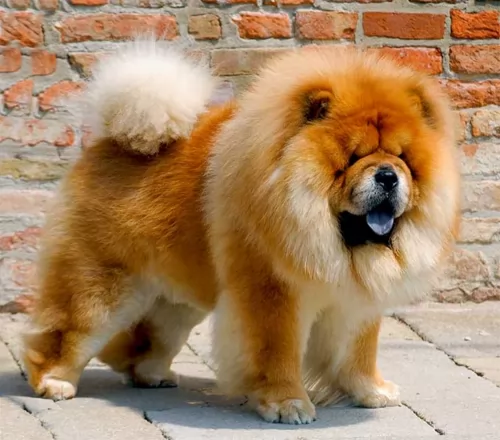 Northern China is the original home of the Chow Chow. In that region of China, the breed was known as the Songshi Quan – “the puffy-lion” dog. They have also been known in China as the “Dog of the Tang Empire” or the Tang Quan. The Chow is believed to be an ancient breed that the Foo Dog, or stone dog guardians of Buddhist palaces and temples, is modeled after. It is one of the most ancient of dog breeds that are still around today.
Northern China is the original home of the Chow Chow. In that region of China, the breed was known as the Songshi Quan – “the puffy-lion” dog. They have also been known in China as the “Dog of the Tang Empire” or the Tang Quan. The Chow is believed to be an ancient breed that the Foo Dog, or stone dog guardians of Buddhist palaces and temples, is modeled after. It is one of the most ancient of dog breeds that are still around today.
It is believed that they have existed for around 2000 years or perhaps even as far back as 3000 years, starting out in Mongolia and migrating to China. The ancientness of the Chow Chow has been validated through DNA testing. In China all those centuries ago, the Chow Chow was born to be a working dog. They hunted, herded, guarded and pulled carts. They went on quests with the Mongolian armies when China was invaded, as well as when the Mongolians invaded the Middle East and Europe later on.
Today’s Canadian Kennel Club has about 350 Chows registered while the AKC gets 10,000 new registrations every year.
 The Russian Spaniel is a gun dog which has originated from the English Cocker Spaniel and the English Springer Spaniel. Today while he is a gun dog he is more of a companion dog.
The Russian Spaniel is a gun dog which has originated from the English Cocker Spaniel and the English Springer Spaniel. Today while he is a gun dog he is more of a companion dog.
The Russian Spaniel has been spoken about since 1891. Different Spaniel breeds were imported to Russia to be used for hunting but some of the smaller spaniels weren't suited to the weather conditions.
At the beginning of the 20th century, breeding programs got underway for longer legged spaniels, and by the late 1930's there were a variety of different spaniels in Moscow.
After World War II, more purposeful breeding got underway and this led to the the Russian Spaniel standard in 1951. The popularity of the dog has increased and in 2002 the Russian Spaniel Club was set up in the United States. The dog isn’t recognised by any major kennel clubs.
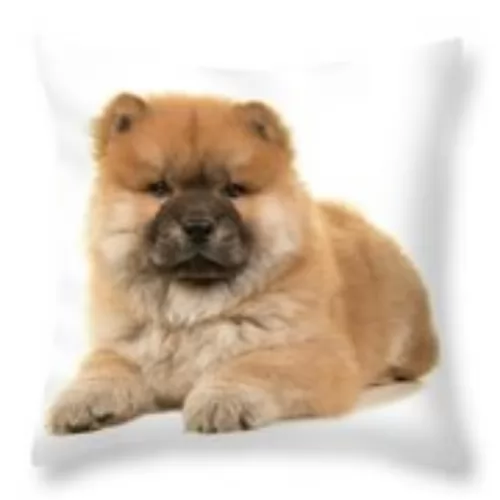 The Chow really does look like a small lion with a black tongue. The dog is sturdy and square with erect, small ears on a broad skull. They have a very dense double coat. Their eyes are deep set and look like almonds, while they all have that very distinctive purple or black tongue. Their lips are also distinctive with their blue color. The nose is black, but some Chows might have a blue nose. The tail is curly.
The Chow really does look like a small lion with a black tongue. The dog is sturdy and square with erect, small ears on a broad skull. They have a very dense double coat. Their eyes are deep set and look like almonds, while they all have that very distinctive purple or black tongue. Their lips are also distinctive with their blue color. The nose is black, but some Chows might have a blue nose. The tail is curly.
These are medium size dogs when it comes to height and weight, but they are powerfully built for their size. Their power is in their compact body holding the energy and strength of a much larger dog. Its hind legs are almost entirely straight, unusual for any dog. They get their lion appearance from the huge ruff that stands behind their heads. Their chest is broad and deep.
 The attractive little Russian Spaniel stands at 38 – 45cm in height ad weighs between 9 and 16kg. He is such a sturdy little dog too, looking very similar to the English Cocker Spaniel.
The attractive little Russian Spaniel stands at 38 – 45cm in height ad weighs between 9 and 16kg. He is such a sturdy little dog too, looking very similar to the English Cocker Spaniel.
The coat is short and silky with quite a bit of feathering around the legs and ears. Colors of the coat can be anything from reddish brown and white with freckles to black and white with freckles.
Aside from the Russian Spaniels' hunting abilities, they make great family pets and are playful with children.They’re devoted to their human families and become particularly attached to one person in the family.
Such devotion leads them to being a bit cool around strangers, not liking anyone unfamiliar to get too close to any of his family members.
He is intelligent and can be easily trained to obey simple commands such as sit, stay, lie down and come.
The Russian Spaniel can be happy in the suburbs, on a farm or in the city so long as he gets lots of attention and enough exercise.
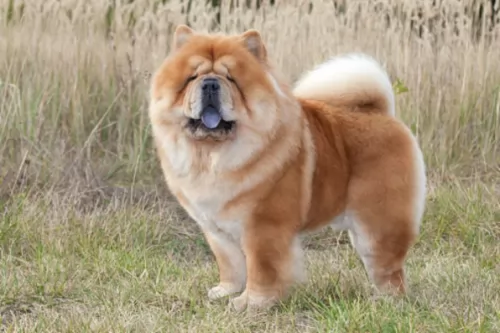 Loyal and true to their family and those they know; the Chow Chow is a little standoffish with strangers. They are very protective and usually attach themselves to one or two people. They are intelligent but stubborn, which can affect your training with them. They need to respect their people and Chows respect hose who take care of them. They can be aggressive toward dogs of their same sex especially if those dogs are the same breed as well.
Loyal and true to their family and those they know; the Chow Chow is a little standoffish with strangers. They are very protective and usually attach themselves to one or two people. They are intelligent but stubborn, which can affect your training with them. They need to respect their people and Chows respect hose who take care of them. They can be aggressive toward dogs of their same sex especially if those dogs are the same breed as well.
They are known to be very clean and many have compared them to cats in that regard. They appear to be dignified and refined. They are usually very quiet but very adaptable dogs.
 The Russian Spaniel is such an energetic, dog, full of life ad with the joys of being alive.
The Russian Spaniel is such an energetic, dog, full of life ad with the joys of being alive.
Although he was a gun dog, today he is loved for his companionship. He makes a splendid family pet and loves to be involved with the games of children.
He is easy-going and social, and just wants to spend as much time as he can with his human family. Give him all the love you have and you'll see his tail never stops wagging.
 Although an ancient breed that obviously has survived many centuries of trials, the Cho Chow of today is prone to several different health conditions. These include:
Although an ancient breed that obviously has survived many centuries of trials, the Cho Chow of today is prone to several different health conditions. These include:
This condition can require surgery to keep the turning eyelid from injuring the eye ball.
This can cause lameness and arthritis.
This can cause lameness and arthritis.
Make sure you keep the ears clean and keep an eye on them.
 With very few health problems, the feisty Russian Spaniel can get to 12-14 years of age. Nonetheless, there are always some of the more common health issues to look out for.
With very few health problems, the feisty Russian Spaniel can get to 12-14 years of age. Nonetheless, there are always some of the more common health issues to look out for.
Russian Spaniels are prone to developing ear infections. Ear infections can be terribly frustrating for a dog and they are quite difficult to clear up. It is advised that dog owners use ear cleaners before infection sets in. The vet can advise you on this as you have to be careful not to damage the inside of the ear.
Itchy skin can be another terrible frustration for a dog. Allergies often cause terrible itching, and your dog will go mad trying to gnaw and bite at the itch. Finding the specific cause of a skin allergy can be very challenging. Blood tests might be required. It is imperative to feed your dog some raw meat occasionally to avoid these terrible skin infections.
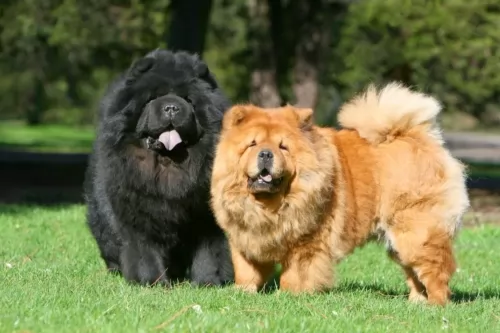 Don’t overfeed a Chow Chow as they are hard workers and big eaters. Feed them at least twice a day.
Don’t overfeed a Chow Chow as they are hard workers and big eaters. Feed them at least twice a day.
This eye disease can lead to blindness if not checked and treated.
These can be removed from an adolescent puppy.
Again, the Chow is susceptible to cancer.
Can lead to heart or kidney problems if left untreated.
Keep a close eye on your Chow Chow skin.
The Chow Chow was developed as working dog, but today’s version is more laid back and doesn’t need excessive exercise. Daily walks will suffice. They live very happily in the city if walked regularly. They are not really a competitive breed outside of obedience and confirmation. They are seldom seen in sports like agility or frisbee.
 This dog was raised to be a gun dog, and is used to having plenty of exercise. Most imperative for him will be a couple of walks each day plus lots of chase-the-ball games. These dogs just never seem to get tired as they are playful and will never let the chance of a game pass them by.
This dog was raised to be a gun dog, and is used to having plenty of exercise. Most imperative for him will be a couple of walks each day plus lots of chase-the-ball games. These dogs just never seem to get tired as they are playful and will never let the chance of a game pass them by.
Spaniel ears require quite a bit of upkeep as the hair can become extremely matted, forming balls of knotted hair. The inside of the ears must be constantly checked for infection. The spaniel’s coat will need to be brushed regularly and he can even go to the groomers and get a short Spaniel cut.
Contribute to your pet’s good health by providing him with top notch food. A good nutritious diet for the Russian Spaniel will give your dog less of a chance to get sick. Always go for the best quality commercially manufactured dog foods.
To provide your dog with just a bit of variety in his diet, some home-made food added into the dry kibble from time to time will delight your pet. No need to make preparing the food a huge issue either. Boil brown rice and chicken in a pot and add in sweet potatoes, carrots and spinach. Chop all this up, and as a treat, add smaller portions of it into the dry kibble.To avoid skin infections, try to include some raw meat into his diet occasionally.
Never leave your pet without a constant source of fresh, cool water